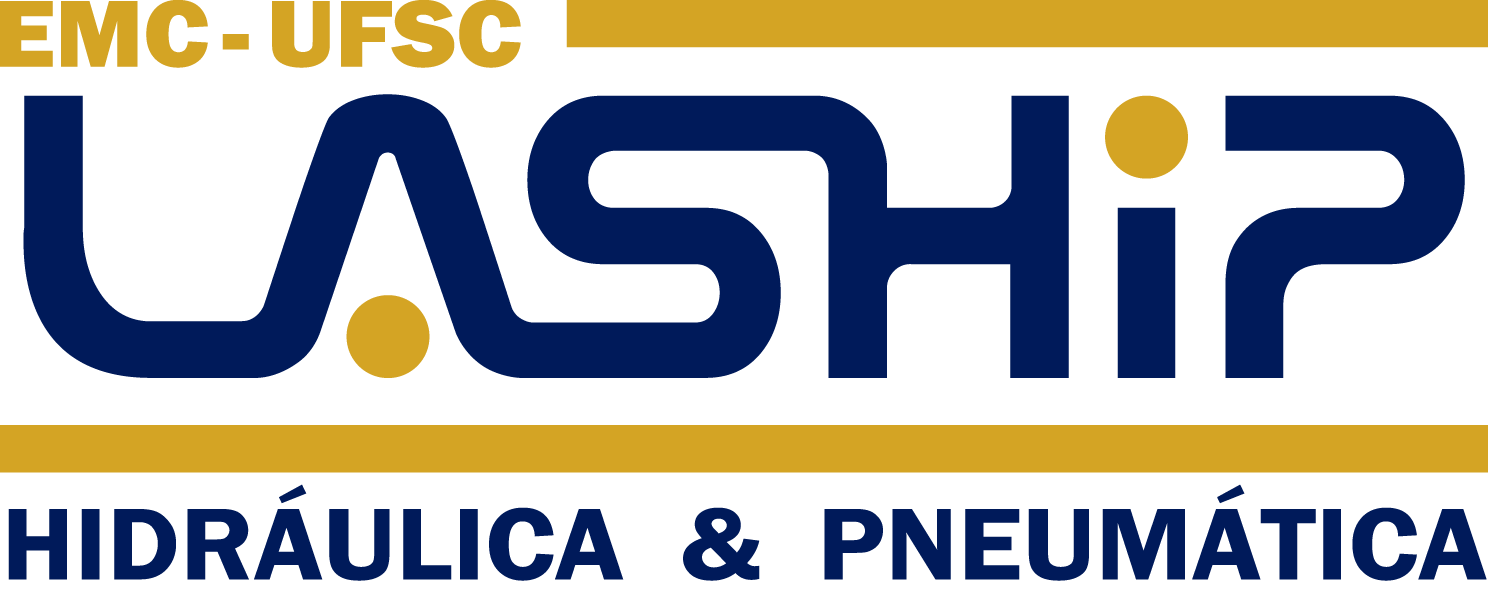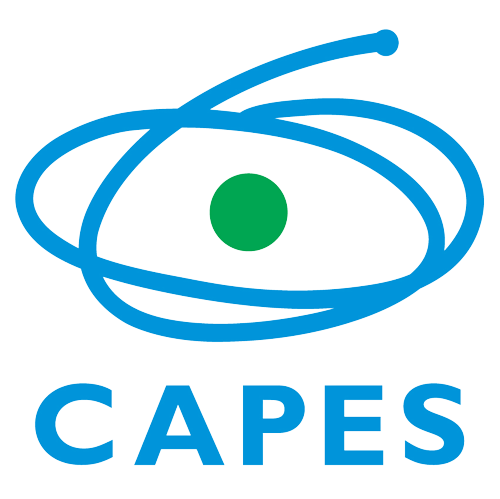Program and Speakers
The workshop consists of short courses, panel discussions and, industry and academia presentations, both from Brazil and abroad, connecting people with complementary perspectives.
The short courses will focus on practical applications of tools and technologies for designing and developing fluid power components and systems. They will be given by expert engineers and researchers from industry and academia. Two short courses will occur simultaneously, one given in English and the other one in Portuguese. The short courses will not be transmitted online.
The panelists for the panel discussions are distinguished professors and industry executives that will share their experiences and background in fluid power systems, management, innovation, and application areas of control and automation.
Industry and academic presentations will be carried out by engineers from industry and master’s and doctoral students, both from Brazil and other countries. The selection of presentations will follow a review process as mentioned at the Academic presenters and Industry presenters Tabs.
Click here for the detailed program
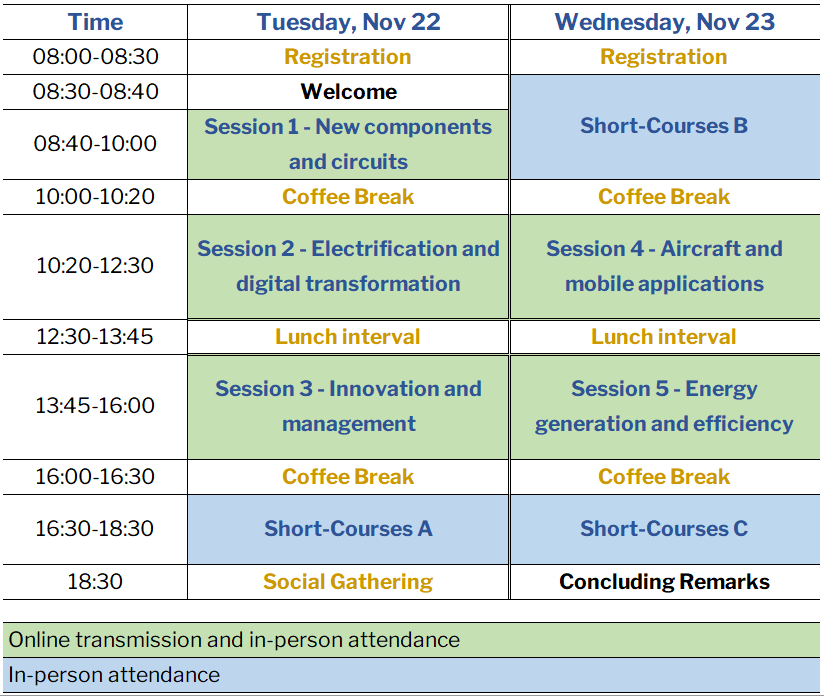
Confirmed Short-Courses
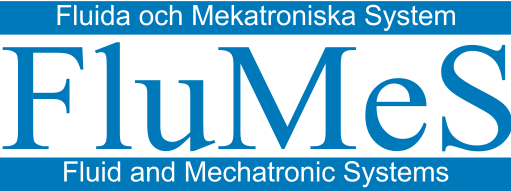
Lecturer: Prof. Liselott Ericson, Linköping University, Sweden
Title: Hydraulic pump and motor design for electrically powered hydraulic systems
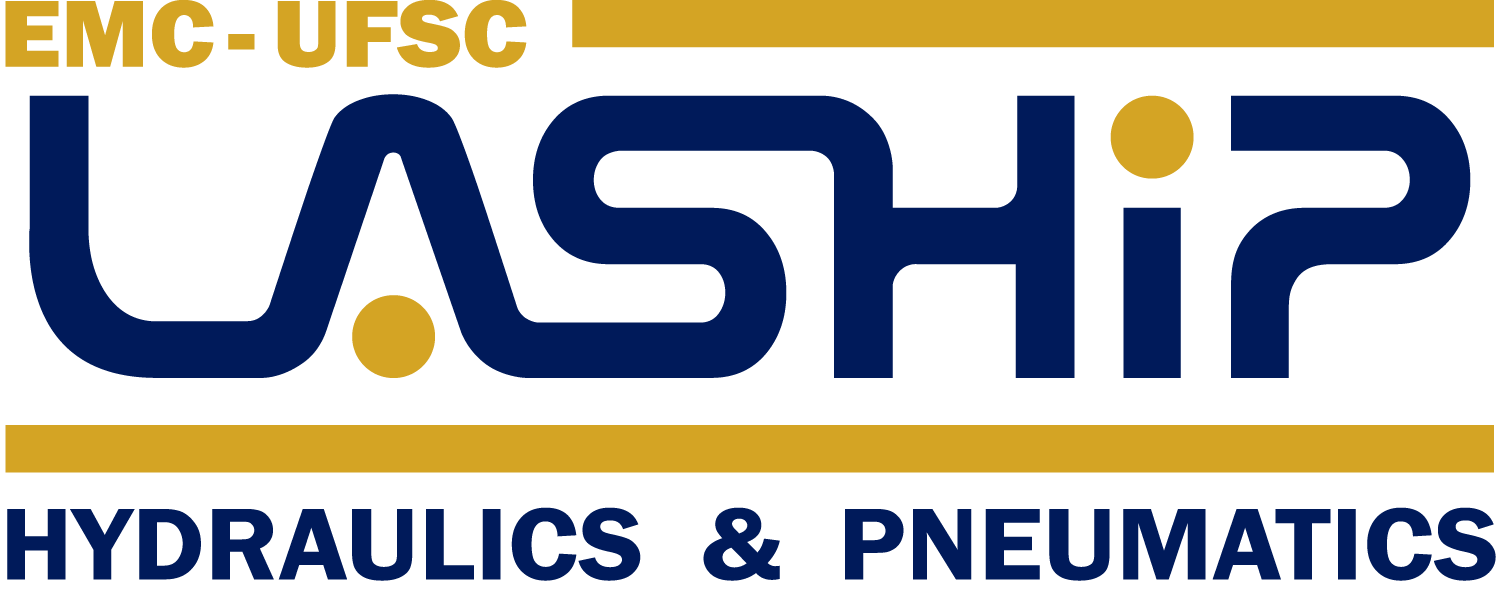
Lecturer: Prof. Marcos P. Nostrani, Federal University of Santa Catarina, Brazil
Title: Sizing and design of hydraulic positioning systems
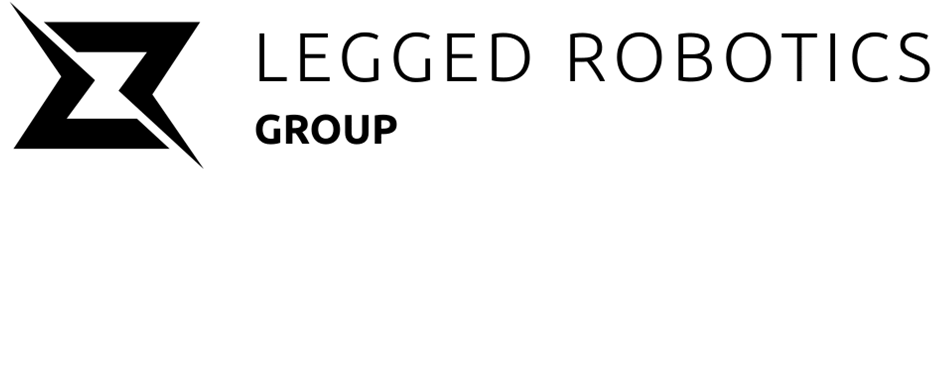
Lecturer: Prof. Thiago Boaventura, University of São Paulo, Brazil
Title: Force and Impedance Control of Hydraulically-actuated Robots

Lecturer: Marcel Magre, Hydac, Brazil
Title: On-line Monitoring of the Hydraulic System and its Advantages (in Portuguese)

Lecturers: Eng. Luciano L. S. Guimarães and Eng. João Luiz S. Amorim, TCT Hidráulica, Brazil.
Title: Proactive Maintenance Engineering in Hydraulic Systems (in Portuguese)
Confirmed Panelists
Prof. Katharina Schmitz, RWTH Aachen university, Germany
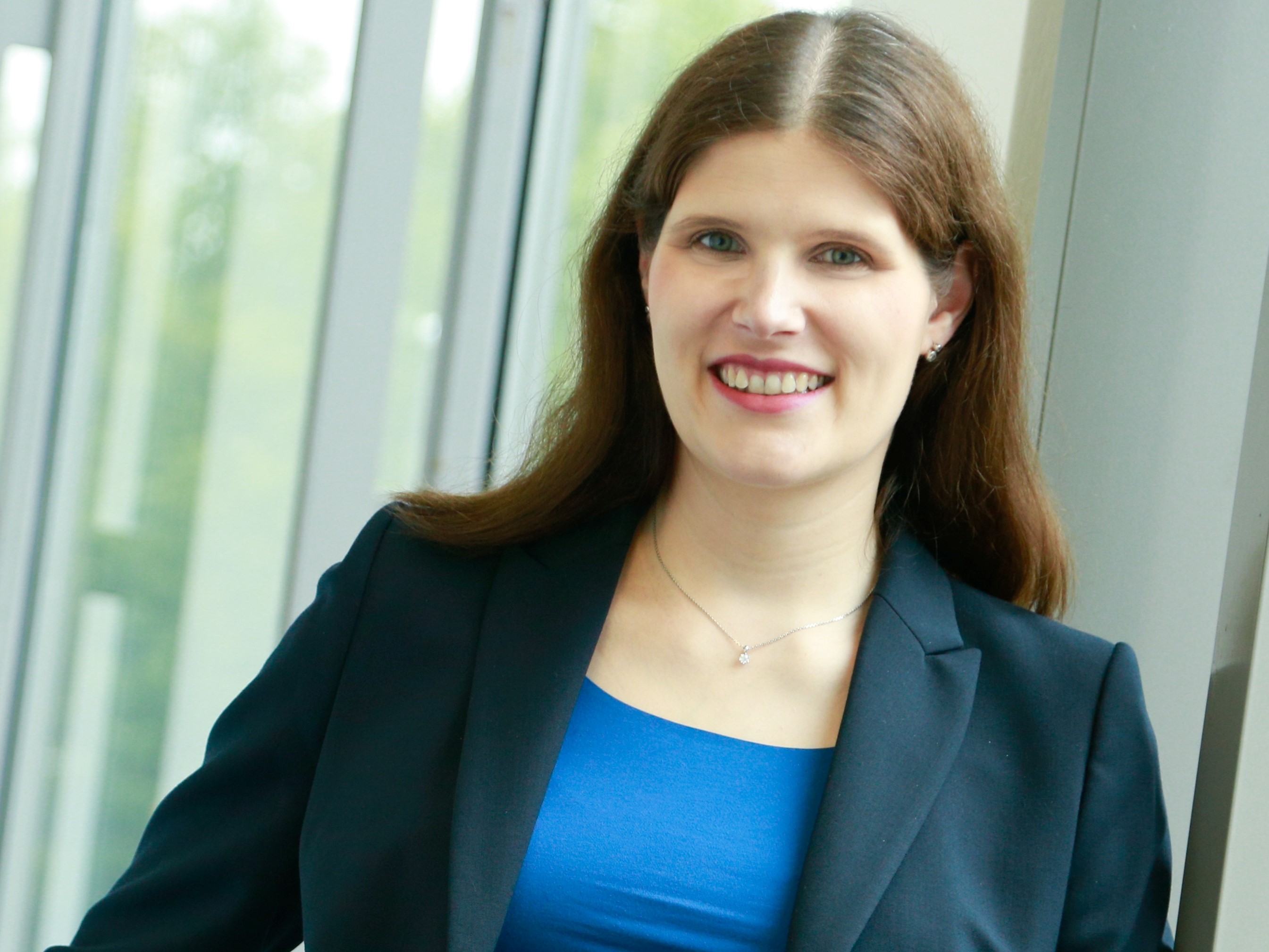 Prof. Katharina Schmitz graduated in mechanical engineering at RWTH Aachen University in 2010 with part of her studies taking place at Carnegie Mellon University in Pittsburgh (USA) and working in Le Havre (France). After graduation, she worked as a scientific staff member and Deputy Chief Engineer at IFAS, the Institute for Fluid Power Drives and Controls of Prof. Murrenhoff. In 2015, Prof. Schmitz graduated as Dr.-Ing. and started working in the industrial sector for a family-owned company, which focuses on special purpose hydraulic solutions and large cylinders. There, she was promoted to Technical Director in 2016. Since March 2018 she is a full professor at RWTH Aachen University and Director of IFAS, the Institute or Fluid Power Drives and Systems. The institute is one of the largest research facilities focusing on all aspects of fluid power drives and systems with about 30 researcher associates, 45 Master students and about 35 Bachelor Students. In addition, in January 2020 she took over the position as Vice Dean of the Faculty of Mechanical Engineering at RWTH Aachen. Prof. Schmitz is editor and member of editorial board of national and international journals. In addition, she is involved in conference organization worldwide as member of program committees.
Prof. Katharina Schmitz graduated in mechanical engineering at RWTH Aachen University in 2010 with part of her studies taking place at Carnegie Mellon University in Pittsburgh (USA) and working in Le Havre (France). After graduation, she worked as a scientific staff member and Deputy Chief Engineer at IFAS, the Institute for Fluid Power Drives and Controls of Prof. Murrenhoff. In 2015, Prof. Schmitz graduated as Dr.-Ing. and started working in the industrial sector for a family-owned company, which focuses on special purpose hydraulic solutions and large cylinders. There, she was promoted to Technical Director in 2016. Since March 2018 she is a full professor at RWTH Aachen University and Director of IFAS, the Institute or Fluid Power Drives and Systems. The institute is one of the largest research facilities focusing on all aspects of fluid power drives and systems with about 30 researcher associates, 45 Master students and about 35 Bachelor Students. In addition, in January 2020 she took over the position as Vice Dean of the Faculty of Mechanical Engineering at RWTH Aachen. Prof. Schmitz is editor and member of editorial board of national and international journals. In addition, she is involved in conference organization worldwide as member of program committees.
Prof. Kim Stelson – University of Minnesota, USA
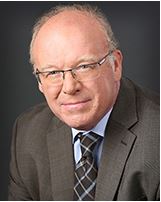 Kim A. Stelson received his bachelor’s of science degree in mechanical engineering from Stanford University in 1974 and his S.M. and Sc. D. degrees in mechanical engineering from MIT in 1977 and 1982, respectively. He is the founding director of the CCEFP, the Center for Compact and Efficient Fluid Power, and serves as a professor in the department of mechanical engineering at the University of Minnesota since 1981. He has been a visiting faculty member at the Hong Kong University of Science and Technology, the University of Auckland, and the University of Bath. Stelson was active in the research of modeling and control of manufacturing processes, with a focus on metal forming, polymer processing, and composite materials manufacturing. He is now involved in fluid power research including hydraulic hybrid vehicles and hydrostatic transmissions for wind power.
Kim A. Stelson received his bachelor’s of science degree in mechanical engineering from Stanford University in 1974 and his S.M. and Sc. D. degrees in mechanical engineering from MIT in 1977 and 1982, respectively. He is the founding director of the CCEFP, the Center for Compact and Efficient Fluid Power, and serves as a professor in the department of mechanical engineering at the University of Minnesota since 1981. He has been a visiting faculty member at the Hong Kong University of Science and Technology, the University of Auckland, and the University of Bath. Stelson was active in the research of modeling and control of manufacturing processes, with a focus on metal forming, polymer processing, and composite materials manufacturing. He is now involved in fluid power research including hydraulic hybrid vehicles and hydrostatic transmissions for wind power.
Prof. Emilia Villani – Aeronautics Institute of Technology (ITA), Brazil
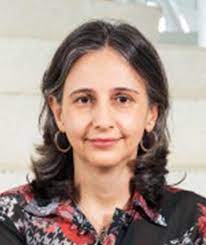 Emília Villani is currently the Dean of Graduate Studies at the Aeronautics Institute of Technology (ITA). She holds a degree in mechatronics engineering from the University of São Paulo (1997), a master’s degree (2000), and a doctorate (2004) in mechanical engineering also from the University of São Paulo. Since 2005 she has been an associate professor at the Aeronautics Institute of Technology, working in mechatronics engineering and aerospace systems. She develops research related to (1) specification, verification, and validation of embedded systems for critical applications, (2) design of industrial automation systems, with an emphasis on robotics applications, and (3) human factors in aeronautical applications.
Emília Villani is currently the Dean of Graduate Studies at the Aeronautics Institute of Technology (ITA). She holds a degree in mechatronics engineering from the University of São Paulo (1997), a master’s degree (2000), and a doctorate (2004) in mechanical engineering also from the University of São Paulo. Since 2005 she has been an associate professor at the Aeronautics Institute of Technology, working in mechatronics engineering and aerospace systems. She develops research related to (1) specification, verification, and validation of embedded systems for critical applications, (2) design of industrial automation systems, with an emphasis on robotics applications, and (3) human factors in aeronautical applications.
Eng. Mario Fernando Valdo – SmartSide, Brazil
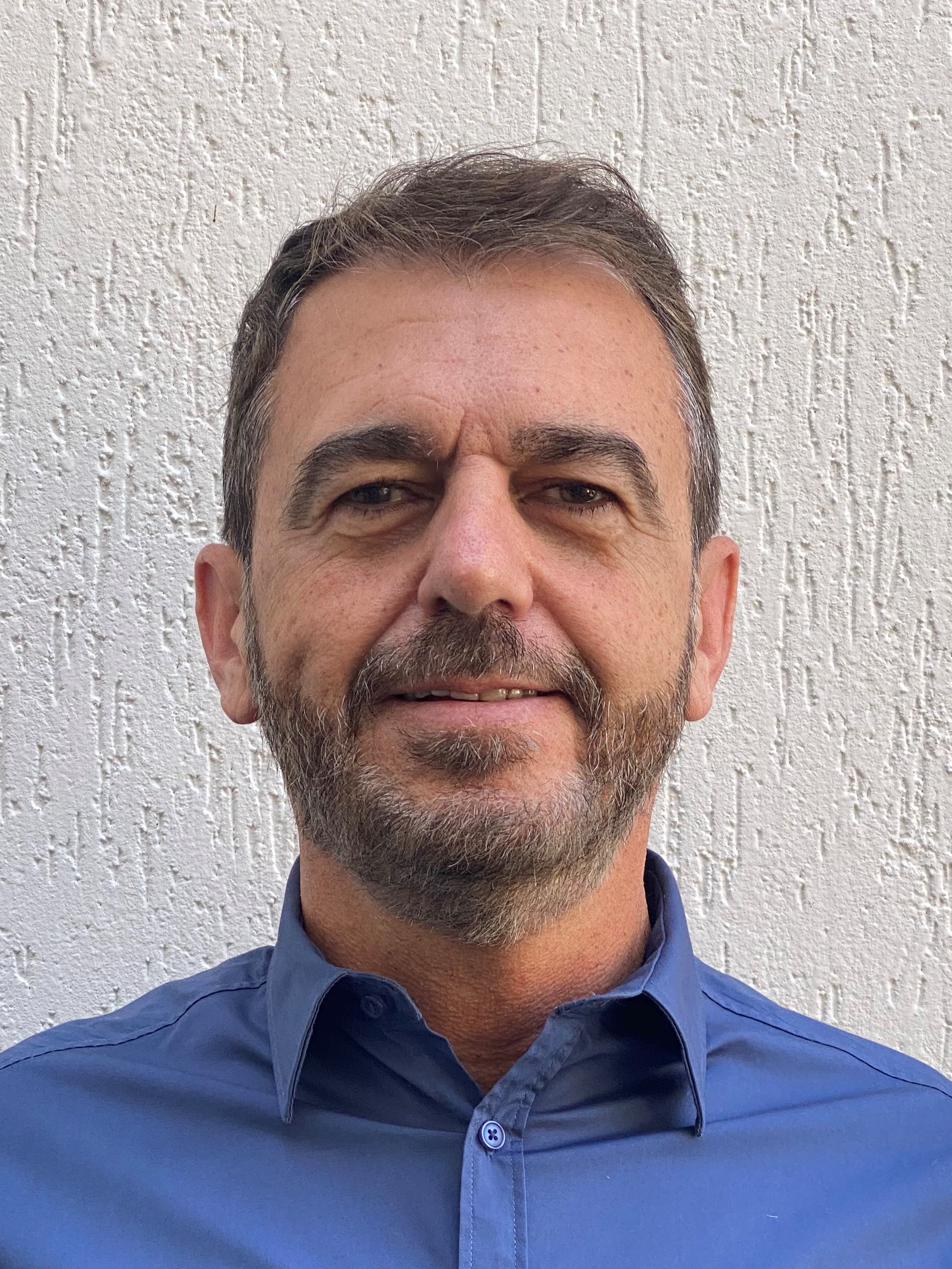 Mario Fernando Valdo has a background in electrical engineering with a master degree in control & automation and in business management (FGV), coupled with years of experience in high-performance motion control systems. He worked many years for MOOG Brazil, starting as an application engineer and retired as the company director for South America. Mario is now providing technical trainings for skilled workforce in industrial motion control systems through SmartSide, his own company. He also provides technical consulting services, including troubleshooting, upgrades and retrofits.
Mario Fernando Valdo has a background in electrical engineering with a master degree in control & automation and in business management (FGV), coupled with years of experience in high-performance motion control systems. He worked many years for MOOG Brazil, starting as an application engineer and retired as the company director for South America. Mario is now providing technical trainings for skilled workforce in industrial motion control systems through SmartSide, his own company. He also provides technical consulting services, including troubleshooting, upgrades and retrofits.
Eng. Waldir Vianna – Mitsubishi Chemicals Group, Brazil
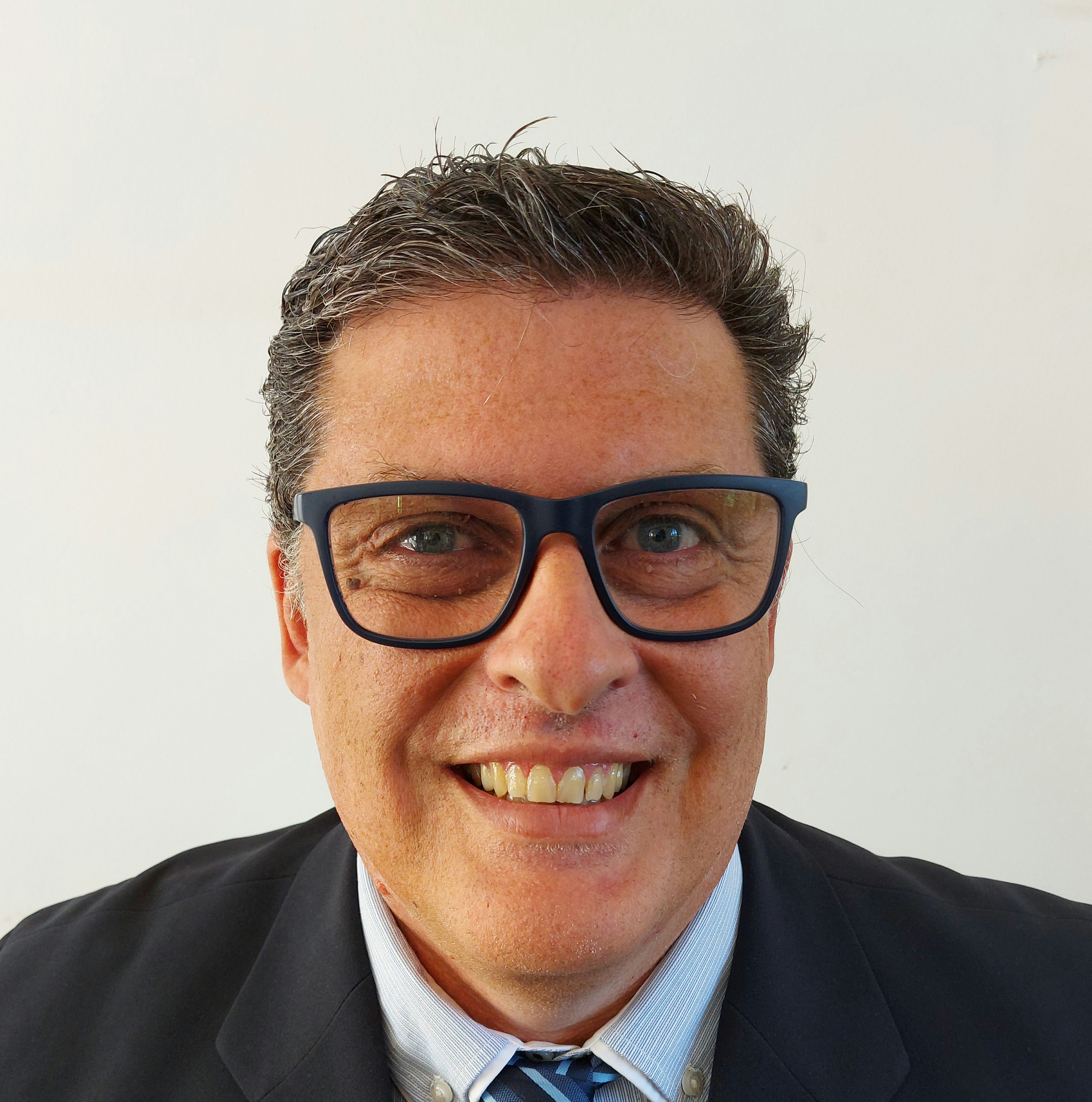 Waldir Vianna Junior is Manager Director of Mitsubishi Chemicals Group Brasil since 2021, Business consultant, General Manager and partner of ARGO-HYTOS AT Fluid Power Systems from 2013 until 2020. Founding partner of AT Industrial Automation from 1999 until 2013. MSc Business Administration – Entrepreneurship, Graduated in Business Administration – ESAN, Postgraduate in Marketing – ESPM, Degree in Mechanical Engineering emphasis on Automotive – FEI. He attended international programs such as Management Development Program, Rutgers University – USA, Leadership Principles – Harvard University, Leader Auditor – SGS, Green Belt, Maintenance, Repair and Set-up Industrial Hydraulics, Bosch Rexroth – USA, Proportional and Servo Circuit Design – Bosch Rexroth – USA, and Electronic Controls for Hydraulic Systems – Bosch Rexroth – USA. He has more than 30 years of leading companies on different areas, markets, segments, and working on design of hydraulic solutions for Industrial, Agriculture, construction, material handling and oil and gas markets. Consultant in hydraulics for companies such as ArcelorMittal, Gerdau, Anglo American, CSN and others. Guest speaker at international seminars MDA 2013, WIEFP 2014, WIEFP 2016, WIEFP 2020.
Waldir Vianna Junior is Manager Director of Mitsubishi Chemicals Group Brasil since 2021, Business consultant, General Manager and partner of ARGO-HYTOS AT Fluid Power Systems from 2013 until 2020. Founding partner of AT Industrial Automation from 1999 until 2013. MSc Business Administration – Entrepreneurship, Graduated in Business Administration – ESAN, Postgraduate in Marketing – ESPM, Degree in Mechanical Engineering emphasis on Automotive – FEI. He attended international programs such as Management Development Program, Rutgers University – USA, Leadership Principles – Harvard University, Leader Auditor – SGS, Green Belt, Maintenance, Repair and Set-up Industrial Hydraulics, Bosch Rexroth – USA, Proportional and Servo Circuit Design – Bosch Rexroth – USA, and Electronic Controls for Hydraulic Systems – Bosch Rexroth – USA. He has more than 30 years of leading companies on different areas, markets, segments, and working on design of hydraulic solutions for Industrial, Agriculture, construction, material handling and oil and gas markets. Consultant in hydraulics for companies such as ArcelorMittal, Gerdau, Anglo American, CSN and others. Guest speaker at international seminars MDA 2013, WIEFP 2014, WIEFP 2016, WIEFP 2020.
Paul Bogatir – Hudiksvall Hydraulics Cluster (HHK), Sweden
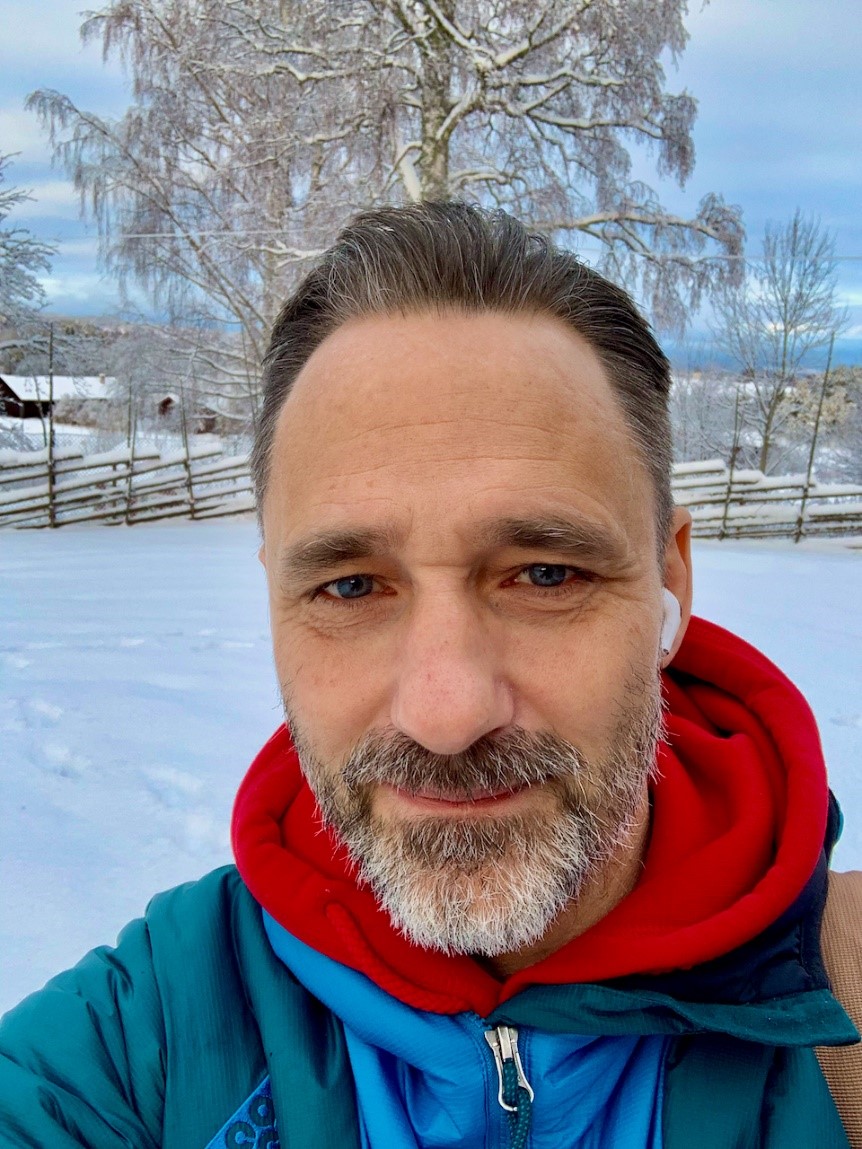 Paul Bogatir is a cross-pollinator; Cluster Manager at Hudiksvall Hydraulics Cluster (HHK) and CEO of HHK Innovation AB in Sweden. Paul uses creativity to scope and facilitate scientific research projects between industry and academia, to surpass sales goals and to build brands that convey a deep sense of purpose. As a purpose-driven cluster in leader in HHK, he builds cross-functional teams spanning multiple businesses and academia to generate innovations, to implement new technology and to get scientific research off the ground. Currently, he is in the steering committee for STEALTH, a research project that aims to electrify mobile hydraulics – one of the most important technologies related Swedish high tech industrial exports.
Paul Bogatir is a cross-pollinator; Cluster Manager at Hudiksvall Hydraulics Cluster (HHK) and CEO of HHK Innovation AB in Sweden. Paul uses creativity to scope and facilitate scientific research projects between industry and academia, to surpass sales goals and to build brands that convey a deep sense of purpose. As a purpose-driven cluster in leader in HHK, he builds cross-functional teams spanning multiple businesses and academia to generate innovations, to implement new technology and to get scientific research off the ground. Currently, he is in the steering committee for STEALTH, a research project that aims to electrify mobile hydraulics – one of the most important technologies related Swedish high tech industrial exports.
Prof. Alessandra Akkari – Sul-Rio-Grandense Federal Institute (IFSul), Brazil
 Alessandra Akkari holds a bachelor’s degree in Science & Technology (2011), a degree in Industrial Engineering (2014), and a doctorate (Direct Ph.D., 2015) in Nanotechnology and Biosystems from the Federal University of ABC (UFABC), receiving a professional training award from Sao Paulo’s Regional Council for Engineering and Agronomy (CREA-SP). She is nationally and internationally recognized for technical and scientific outcomes with external visibility and strong track record of publications and presentations. In 2020, she was invited to make a lecture on Lean 4.0 at St Anne’s College of University of Oxford, and, in that same year, she joined the global project “Design life after COVID-19” at Harvard TH Chan School of Public Health with a focus on human-centered and strategic design of public health policy. She is currently a Professor of Engineering at Sul-Rio-Grandense Federal Institute of Education, Science and Technology and, since 2017, she is also a guest faculty member of the Graduate Program in Engineering and Innovation Management at UFABC. Prof. Akkari maintains an active research program that focuses on digitalization, Industry 4.0, innovation management, and Society 5.0.
Alessandra Akkari holds a bachelor’s degree in Science & Technology (2011), a degree in Industrial Engineering (2014), and a doctorate (Direct Ph.D., 2015) in Nanotechnology and Biosystems from the Federal University of ABC (UFABC), receiving a professional training award from Sao Paulo’s Regional Council for Engineering and Agronomy (CREA-SP). She is nationally and internationally recognized for technical and scientific outcomes with external visibility and strong track record of publications and presentations. In 2020, she was invited to make a lecture on Lean 4.0 at St Anne’s College of University of Oxford, and, in that same year, she joined the global project “Design life after COVID-19” at Harvard TH Chan School of Public Health with a focus on human-centered and strategic design of public health policy. She is currently a Professor of Engineering at Sul-Rio-Grandense Federal Institute of Education, Science and Technology and, since 2017, she is also a guest faculty member of the Graduate Program in Engineering and Innovation Management at UFABC. Prof. Akkari maintains an active research program that focuses on digitalization, Industry 4.0, innovation management, and Society 5.0.
Prof. Luiz Carlos Sandoval Góes – Aeronautics Institute of Technology – ITA, Brazil
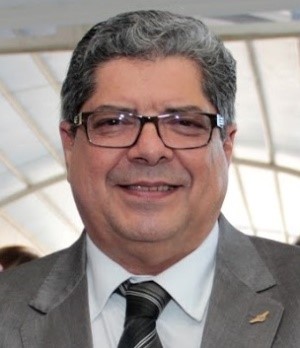 Luiz Carlos S. Góes graduated in Electronic Engineering at the Aeronautical Institute of Technology (ITA) in 1975. Master in Science by the Physics Department of ITA in 1978. Research Assistant and PhD by the Electrical and Computer Engineering Department of the University of Wisconsin-Madison in 1986, with major in Plasma and Controlled Fusion. Professor at the Mechanical Engineering Division of ITA since 1976, Full Professor in Instrumentation and Control Systems since 1991, and Head of the Mechatronics Department of ITA since 2015. His work includes teaching and research activities in modeling, identification and control of aerospace systems, flight testing and control of UAS systems.
Luiz Carlos S. Góes graduated in Electronic Engineering at the Aeronautical Institute of Technology (ITA) in 1975. Master in Science by the Physics Department of ITA in 1978. Research Assistant and PhD by the Electrical and Computer Engineering Department of the University of Wisconsin-Madison in 1986, with major in Plasma and Controlled Fusion. Professor at the Mechanical Engineering Division of ITA since 1976, Full Professor in Instrumentation and Control Systems since 1991, and Head of the Mechatronics Department of ITA since 2015. His work includes teaching and research activities in modeling, identification and control of aerospace systems, flight testing and control of UAS systems.
Eng. Henrique Raduenz – Volvo Construction Equipment AB, Sweden
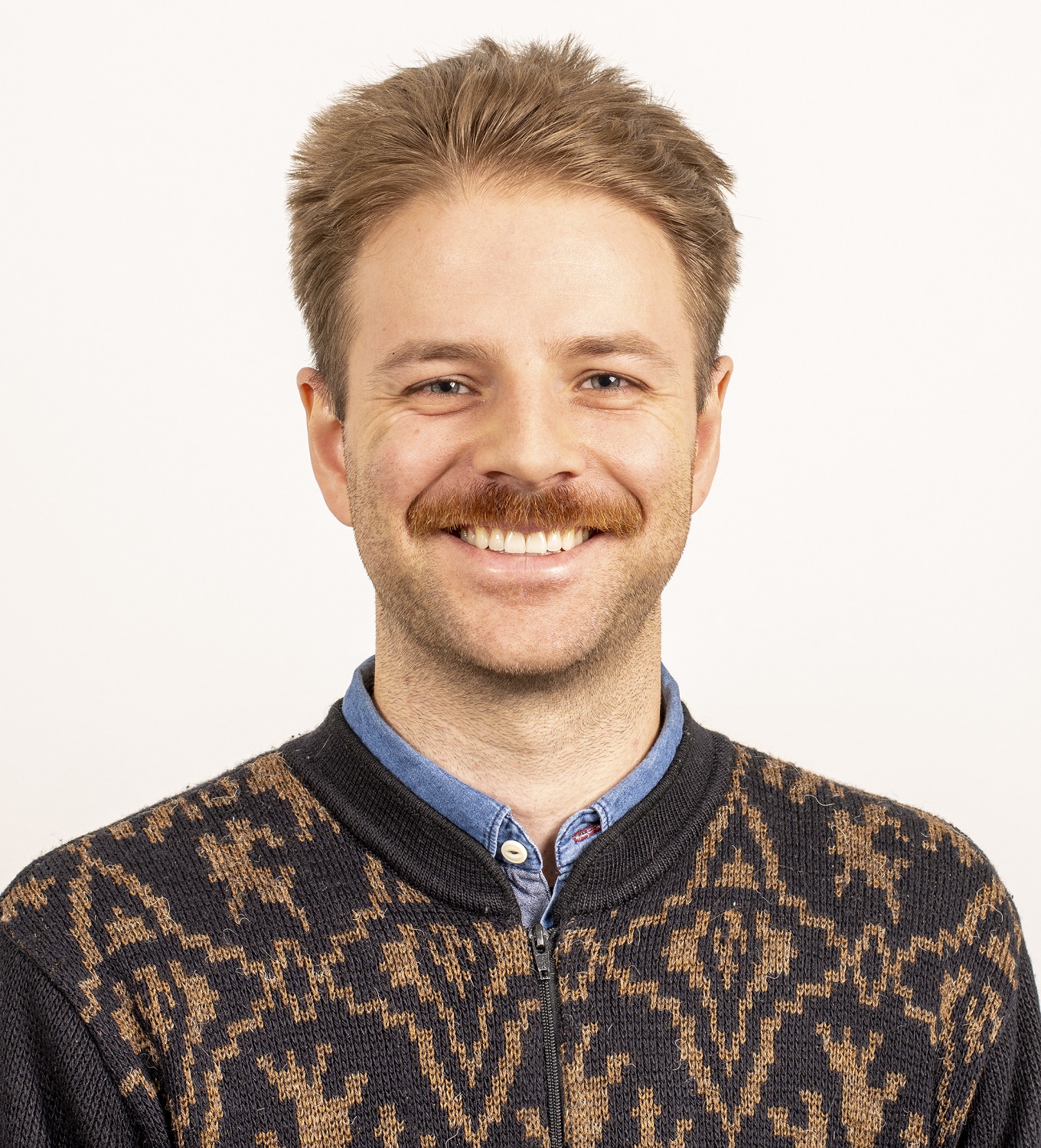 Henrique Raduenz has a background in research and development of hydraulic systems for energy generation systems and for mobile machines. He received the M.Sc. degree in Mechanical Engineering at the Federal University of Santa Catarina (UFSC), Brazil, in 2018. He received his Ph.D. degree in Mechanical Engineering at the Federal University of Santa Catarina (UFSC), Brazil, and at Linköping University, Sweden, in 2022. Currently he works with development of hydraulic systems for mobile machines at Volvo Construction Equipment AB, Sweden.
Henrique Raduenz has a background in research and development of hydraulic systems for energy generation systems and for mobile machines. He received the M.Sc. degree in Mechanical Engineering at the Federal University of Santa Catarina (UFSC), Brazil, in 2018. He received his Ph.D. degree in Mechanical Engineering at the Federal University of Santa Catarina (UFSC), Brazil, and at Linköping University, Sweden, in 2022. Currently he works with development of hydraulic systems for mobile machines at Volvo Construction Equipment AB, Sweden.
Eng. Carlos Augusto Constantino – EMBRAER, Brazil
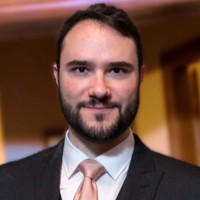 Mechatronic Engineer graduated at Escola Politécnica – USP and Master of Sciences in Mechanical and Aeronautics Engineering at ITA. 14 years of experience at Flight Control Systems, specialist of hydraulic actuation at Primary Flight Control System. Working at EMBRAER since 2008 with direct participation at Flight Control System development of Legacy 450/500 and EJETS E2 program. Today works as Flight Control System Manager at EMBRAER Commercial Aviation, responsible for the Flight Control System development over the EJETS family as well as new developments such as EVE eVTOL program.
Mechatronic Engineer graduated at Escola Politécnica – USP and Master of Sciences in Mechanical and Aeronautics Engineering at ITA. 14 years of experience at Flight Control Systems, specialist of hydraulic actuation at Primary Flight Control System. Working at EMBRAER since 2008 with direct participation at Flight Control System development of Legacy 450/500 and EJETS E2 program. Today works as Flight Control System Manager at EMBRAER Commercial Aviation, responsible for the Flight Control System development over the EJETS family as well as new developments such as EVE eVTOL program.
Eng. Diogo Vinícius João – CERTI Foundation, Brazil
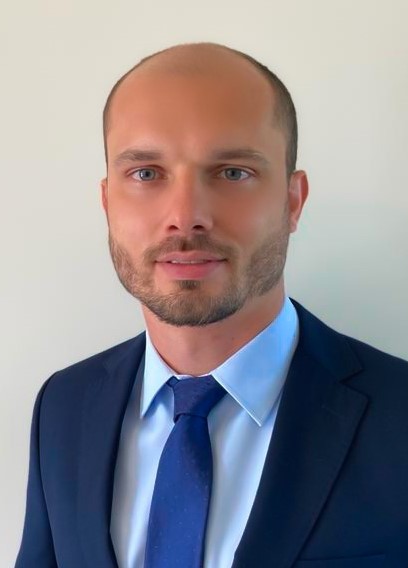 Diogo João has been working at the CERTI foundation on innovation and digital transformation projects in the electricity sector since 2019, where he works as a researcher and coordinator in R&D projects. He graduated from the Federal University of Santa Catarina – UFSC and obtained a master’s degree working on Microgrid Protection at the LABSPOT laboratory. He is currently a doctoral candidate in the Energy Market area. Diogo is a postgraduate course content designer for SENAI, preparing didactic materials for the disciplines of Intelligent Grids, Distributed Energy Resources, Energy Management, and Industry 4.0. He worked on the modernization of the Predictive Maintenance system at ENGIA’s Jorge Lacerda Thermoelectric Plant and worked in research at Laboratories GRUCAD-UFSC/BR, LABSPOT-UFSC/BR, and Complex Control Lab-UGA/USA.
Diogo João has been working at the CERTI foundation on innovation and digital transformation projects in the electricity sector since 2019, where he works as a researcher and coordinator in R&D projects. He graduated from the Federal University of Santa Catarina – UFSC and obtained a master’s degree working on Microgrid Protection at the LABSPOT laboratory. He is currently a doctoral candidate in the Energy Market area. Diogo is a postgraduate course content designer for SENAI, preparing didactic materials for the disciplines of Intelligent Grids, Distributed Energy Resources, Energy Management, and Industry 4.0. He worked on the modernization of the Predictive Maintenance system at ENGIA’s Jorge Lacerda Thermoelectric Plant and worked in research at Laboratories GRUCAD-UFSC/BR, LABSPOT-UFSC/BR, and Complex Control Lab-UGA/USA.
Confirmed Industry Presenters

Presenter: Marcel Magre, Hydac, Brazil
Title: Extend the Life of Your Hydraulic System with Hydac’s Smart Fluid Connection Software

Presenter: Alex Lima, Bosch Rexroth, Brazil
Title: Predictive Analytics: Definition, Functionality and Benefits

Presenter: Gerson Silva, Emerson Automation Solutions, Brazil
Title: Driving Digital Transformation – Pneumatic Solutions

Presenter: Pneumatic Equipment with Constant Monitoring, CAMOZZI, Brazil
Title: Fábio R. Oliveira

Presenter: Ricardo Araujo, Bahri, Brazil
Title: Improving your system design with pressure intensifier

